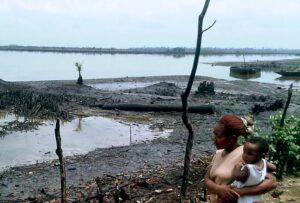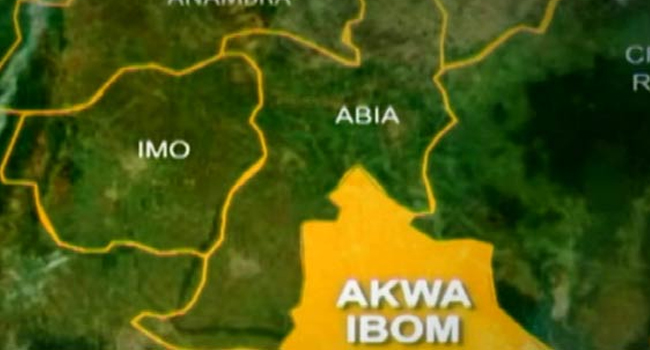A fresh oil spill has reportedly impacted 27 coastal communities in Akwa Ibom State, allegedly originating from the offshore facility of Mobil Producing Nigeria Unlimited. The incident, which occurred in the early hours of Thursday, has caused significant concern among residents and environmental stakeholders in the Ibeno Local Government Area, where the spill was first detected.
The affected communities span a wide area and include notable towns such as Inua Eyet Ikot, Iwuo Ukpom, Mkpanak, Esuk Ikim Akwaha, Esuk Ikim Ekeme (Nta Ikang), Itak Idim Nekpe, Itak Ifaha, Ndito Eka Iba, and Atia. Other communities impacted by the spill are Okposo I & II, New Barracks, Ineh Atian, Itak Ibang, Upenekang, Okoro Itak, Iwuochang, Ikot Inwang, Okoro Utip, Ntafre, Atabre Ikan, Idung Abasi Okure, Qua Iboe River, Iwuo Ukpo Opolom, Ineh Ebot, Ineh Ikwe, Ineh Ukpana, and Ntungo Akata.
The scale of the spill is significant, with communities in four local government areas— Ibeno, ONNA, Eket, and Esit Eket—reportedly affected. These regions are known for their rich marine life and rely heavily on fishing and other aquatic activities for their livelihoods. The oil spill has severely polluted the water bodies in these areas, resulting in the death of fishes, fingerlings, and a wide array of other aquatic animals, causing distress among the local population.
 The environmental and economic impact of the spill is expected to be substantial, as the affected communities depend heavily on the riverine ecosystem for their sustenance and economic activities. The pollution has not only disrupted the local fishing industry but also poses a significant threat to public health, with fears that contaminated water could affect drinking sources and lead to long-term health complications.
The environmental and economic impact of the spill is expected to be substantial, as the affected communities depend heavily on the riverine ecosystem for their sustenance and economic activities. The pollution has not only disrupted the local fishing industry but also poses a significant threat to public health, with fears that contaminated water could affect drinking sources and lead to long-term health complications.
Stakeholders from the impacted communities have expressed their dismay and frustration over the situation. They have called for immediate action to mitigate the damage and hold those responsible accountable. The spill has reignited concerns over the frequency of such incidents in the Niger Delta region, where oil exploration activities have long been associated with environmental degradation and neglect of local communities.
Speaking to journalists in Uyo via telephone, the Akwa Ibom State Commissioner for Environment, Uno Etim Uno, confirmed that his office was aware of the situation. He disclosed that his Permanent Secretary, along with officials from the National Oil Spill Detection and Response Agency (NOSDRA), visited the affected area on Monday to assess the extent of the damage. Samples of the spilled substance were taken for laboratory analysis to determine whether the pollution was indeed caused by an oil spill from the Mobil facility.
“My office is fully aware of the incident, and we are taking necessary steps to address the situation,” Commissioner Uno stated. “The Permanent Secretary, alongside NOSDRA officials, visited the site to collect samples for analysis. It is crucial to confirm whether the spill was caused by crude oil or another substance. The state government is deeply concerned about the well-being of its citizens, and we are awaiting the results of the investigation before taking any further action.”
The Commissioner emphasized that the state government is committed to safeguarding the environment and ensuring that the rights and health of its citizens are protected. He assured the affected communities that appropriate measures would be taken based on the outcome of the investigation.
As the investigation unfolds, the affected communities are left to grapple with the immediate consequences of the spill. Many residents are anxious about the long-term impact on their environment and livelihoods, as previous spills in the region have often led to protracted legal battles and slow remediation efforts. The people of Akwa Ibom are calling for prompt action and transparency from both the government and Mobil Producing Nigeria Unlimited to address the crisis and prevent future occurrences.
The oil spill in Akwa Ibom highlights the ongoing challenges faced by oil-producing communities in Nigeria, where environmental degradation and the struggle for accountability continue to be pressing issues.




